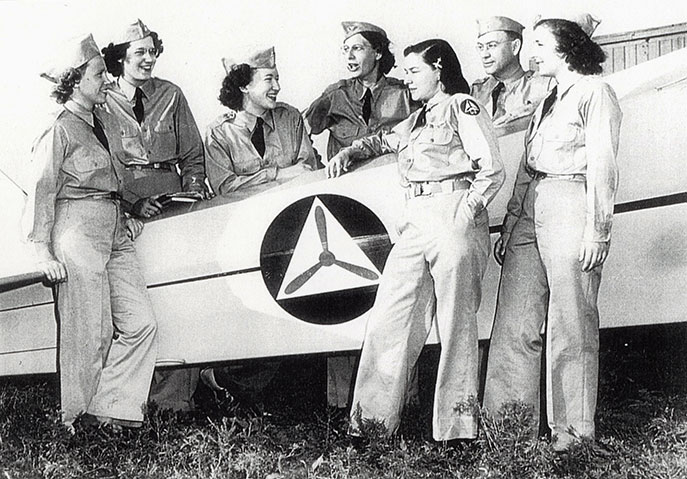MAXWELL AIR FORCE BASE, Ala. (AFNS) -- When the founding
members of Civil Air Patrol, the U.S. Air Force auxiliary, risked life and limb
to help protect the home front during the early days of World War II, they
weren’t looking for recognition.
Some seven decades later, though, they’re receiving it,
thanks to the U.S. House of Representatives’ voice vote Monday afternoon to
award CAP a Congressional Gold Medal for its volunteer service during the war,
when more than 120,000 members stepped up to support the military effort and
help keep the nation secure. The Senate approved the gold medal legislation a
year ago. A new CAP website provides full coverage of CAP’s Congressional Gold
Medal journey, including vintage photos, bios of living World War II veterans,
nationally renowned veterans, B-roll video and blog posts.
Sen. Tom Harkin, D-Iowa, who introduced the Senate
legislation in February 2013, hailed the House vote Monday. “I am delighted to
see this bill receive final approval,” said Harkin, commander of CAP’s
Congressional Squadron. “The men and women of Civil Air Patrol stepped up and
served their country when it needed them during the darkest days of World War
II, and it’s time we recognized them and thanked them for their service.”
Rep. Michael McCaul, R-Texas, who introduced the gold medal
proposal in the House, praised the legacy CAP’s founders established.
“The awarding of the nation’s highest civilian honor, the
Congressional Gold Medal, to the members of the Civil Air Patrol ensures that
long overdue and proper recognition has finally been bestowed upon these brave
men,” McCaul said.
“The Civil Air Patrol's valiant efforts in defending our
coastline, providing combat services and flying dangerous humanitarian missions
in America during World War II embodies the American Spirit of volunteerism.
These brave men were an integral part in defending not only our homeland but
also our principles of freedom and liberty.
“I am proud Congress has taken this step to recognize all of
the important work the Civil Air Patrol did," he said.
CAP was founded Dec. 1, 1941, a week before the bombing of
Pearl Harbor. Within three months, CAP members were using their own planes to
fly anti-submarine missions off the East and Gulf coasts, where German U-boats
were sinking American ships carrying oil and other vital supplies to the
Allies. By the time that mission ended Aug. 31, 1943, CAP’s coastal patrols had
flown 86,685 missions totaling 244,600 hours and than 24 million miles.
Seventy-four planes sent out from coastal patrol bases crashed into the water;
26 CAP members were killed.
Elsewhere, CAP’s airborne missions throughout the U.S.
included border patrols, target-towing for military trainees, fire and forest
patrols, searches for missing people and aircraft, disaster relief, emergency transport of people and supplies,
and orientation flights for future pilots. Many from the organization’s ranks
went on to join the Army Air Forces.
Civil Air Patrol’s national commander, Maj. Gen. Chuck Carr,
said, “The heroic service provided by our members during World War II helped
save lives and preserve our nation’s freedom. I am very grateful they are
finally receiving the recognition they so deserve.”
CAP’s legacy of selfless service for the nation and its
communities continues today. In all 50 states, the District of Columbia, Puerto
Rico and the U.S. Virgin Islands, CAP members stand ready to respond to such
challenges as natural and manmade disasters and searches for missing aircraft
or individuals.








No comments:
Post a Comment